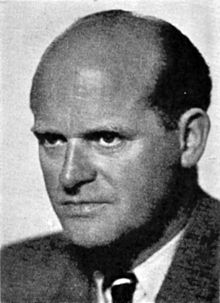This article needs additional citations for verification .(May 2021) |
- 1 2 3 "Nils S Flyg - Journalist, Partiledare, Tidningsredaktör". riksarkivet.se. National Archives of Sweden. Archived from the original on 20 May 2021.
- 1 2 Stenfeldt, Johan (23 September 2020). "Johan Stenfeldt – En kommunist som blir nazist, en nazist som blir kommunist" (in Swedish). Lund: Lund University. Archived from the original on 20 May 2021. Retrieved 23 September 2020.
- ↑ Stenfeldt, Johan (2019). Renegater : Nils Flyg och Sven Olov Lindholm i gränslandet mellan kommunism och nazism. Lund: Nordic Academic Press. ISBN 9789188909282.
- ↑ Stenfeldt, Johan (2020). "Johan Stenfeldt – En kommunist som blir nazist, en nazist som blir kommunist" – via YouTube.
- ↑ Knut Senander, Röd gryning, sid. 77
Nils Flyg | |
|---|---|
 Nils Flyg c. 1938 | |
| Leader of the Socialist Party | |
| In office 1929–1943 |
